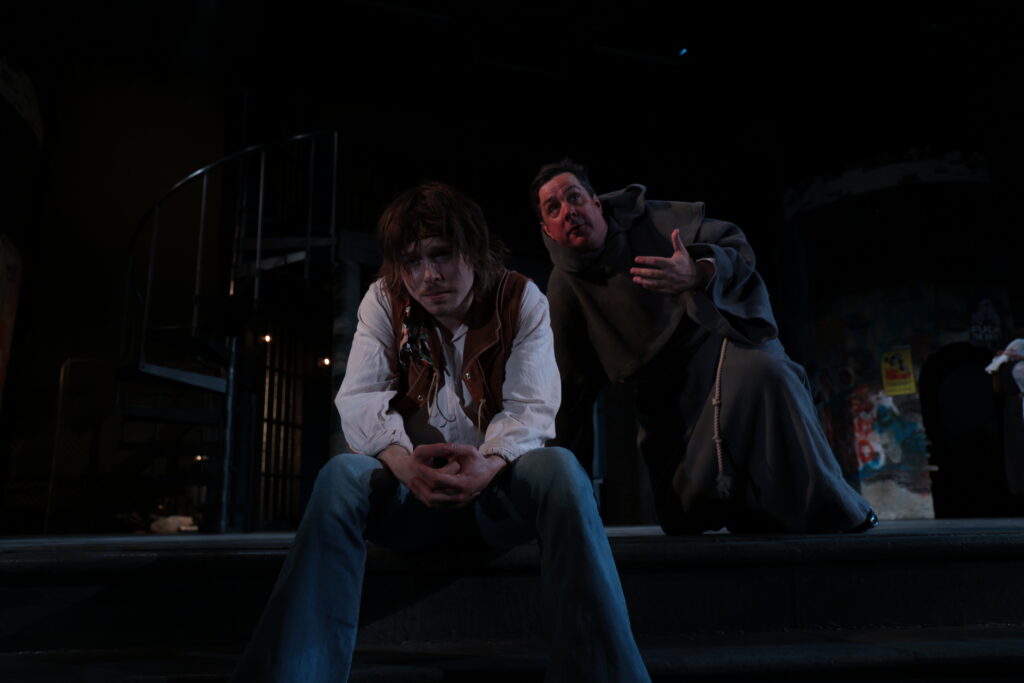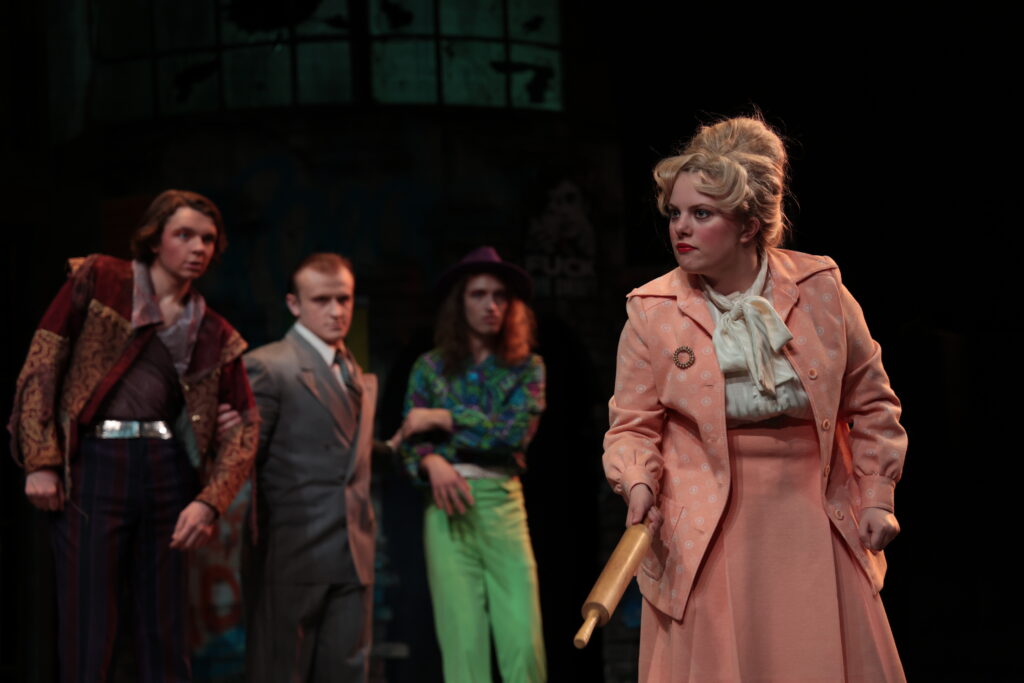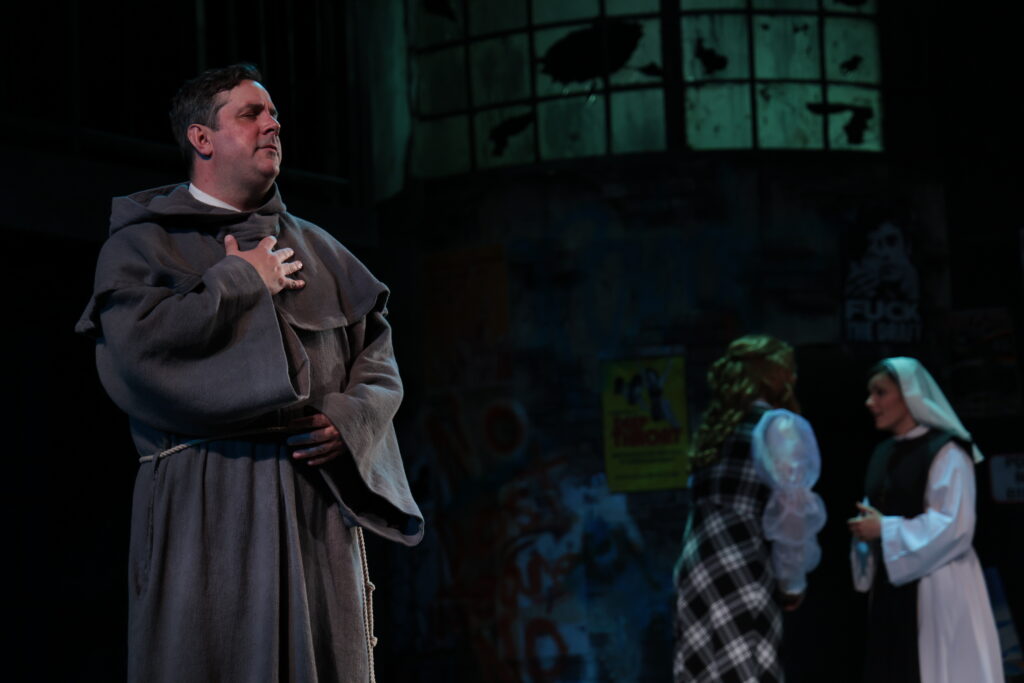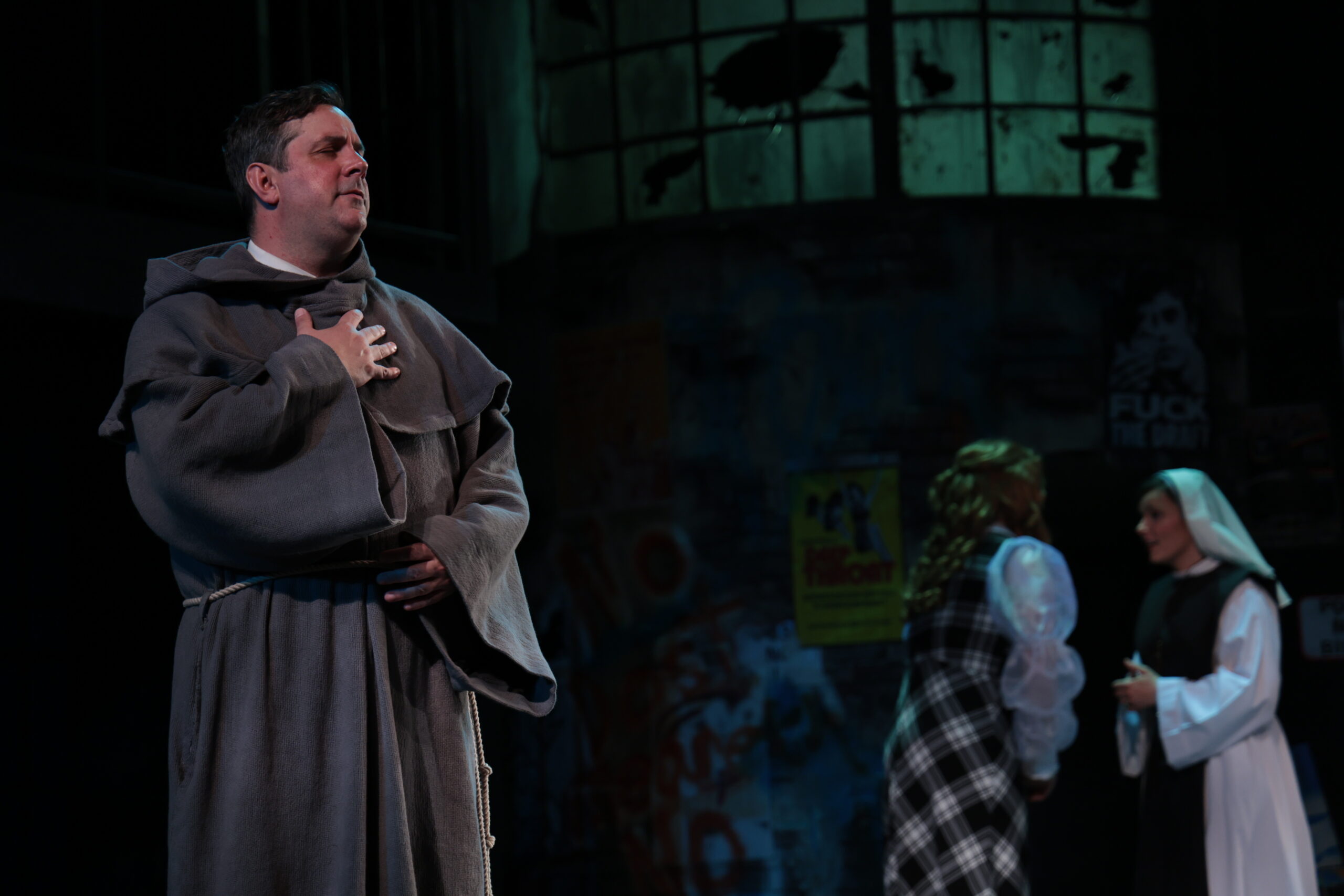Measure for Measure by William Shakespeare
“Judge not, that ye be not judged. For with what judgment ye judge, ye shall be judged, and with what measure you mete, it shall be measured to you again.”
– Matthew 7:1-2
“We are stardust, we are golden.
We are billion-year-old carbon,
And we got to get ourselves
Back to the garden.”
– Crosby, Stills, Nash, and Young
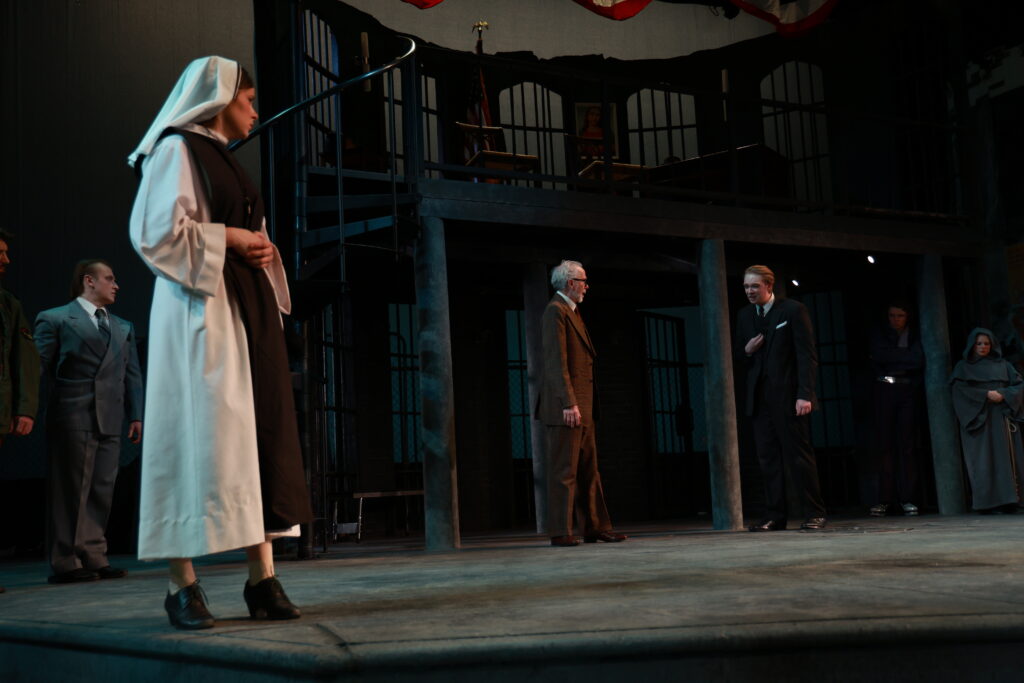
We find ourselves at a perilous crossroads. The boundary between authority and authoritarian is increasingly murky. Government officials make decisions about what consenting adults can do in the purported privacy of their own bedrooms. Powerful men demand transactional sexual encounters from women who seek professional support or political assistance. Individual desires are repeatedly dragged into the public sphere to be judged, to be canceled, while the elite carry on in private. Women’s words are dismissed, discounted, and only finally heard far too late. There are regular and increasingly daring transgressions of the rule of law. People knowingly accept that they are being misled by their leaders.
This is Measure for Measure’s Ferrara.
Where did you think I meant?
The Duke of Ferrara, Vincentio, a man who “above all other strifes, contends especially to know himself,” has let several blue laws slide for the past fourteen years. Hoping to restore order, he places his strict deputy, Angelo, in charge. He may be hoping that Angelo can clean everything up, take the heat for it, and then he can turn back up to release a little pressure, taking the credit. He also wonders whether Angelo can possibly be as strict, as abstinent, as remote as he appears. The Duke says of Angelo, “Hence shall we see / if power changes purpose, what our seemers be.” Lord Angelo doth protest too much, the Duke suspects, but he promptly cracks down hard, condemning a young man named Claudio to death for making love with his fiancée, Juliet. When Claudio’s sister, Isabel, a novice in a convent, appeals to the strict deputy for mercy, Angelo demands that Isabel pay a horrific price.
401 years before Tarana Burke coined the phrase “Me, too,” as a way for women to share their stories of sexual assault, Shakespeare captured a violence against which many of us still struggle. Isabel asks, “To whom should I complain? Did I tell this, who would believe me?” And then, sure enough, the Duke in disguise sets up a situation in which Isabel will not be believed, will be portrayed as unhinged, where her powerful attacker is placed in a position to evaluate the veracity of her claims.
On one of its many levels, the play functions as the Duke’s journey in search of greater self-knowledge, and in that regard, it seems important to him that other characters should come to know themselves better as well. But the Duke, even as he compels Angelo to a fuller understanding of his shortcomings and Isabel to a richer sense of compassion and mercy, fails to account for his own vanity, the gaps in his own understanding of human nature, and his extreme sensitivity to criticism. The Duke of seeming self-knowledge is, to himself, still a Duke of dark corners, and can forgive anything but insults directed towards his own person. Power often does change purpose.
Measure for Measure refuses a clean resolution. The play stops, but it does not end. Shakespeare poses us some weighty questions, but, as usual, he refuses to answer them for us. What is the nature of justice? How might we get to true public accountability and also forgiveness? Should Angelo be ‘canceled’ or should he host a prime time news show? Do we even acknowledge a relationship between justice and mercy? Where is the boundary between authority and tyranny? Does the government have a right to legislate what we do in our own bedrooms, or questions of bodily autonomy generally? What might measure still for measure actually look like?
We may be billion-year-old carbon, but we are no closer to consensus. How do we get ourselves back to the garden?
